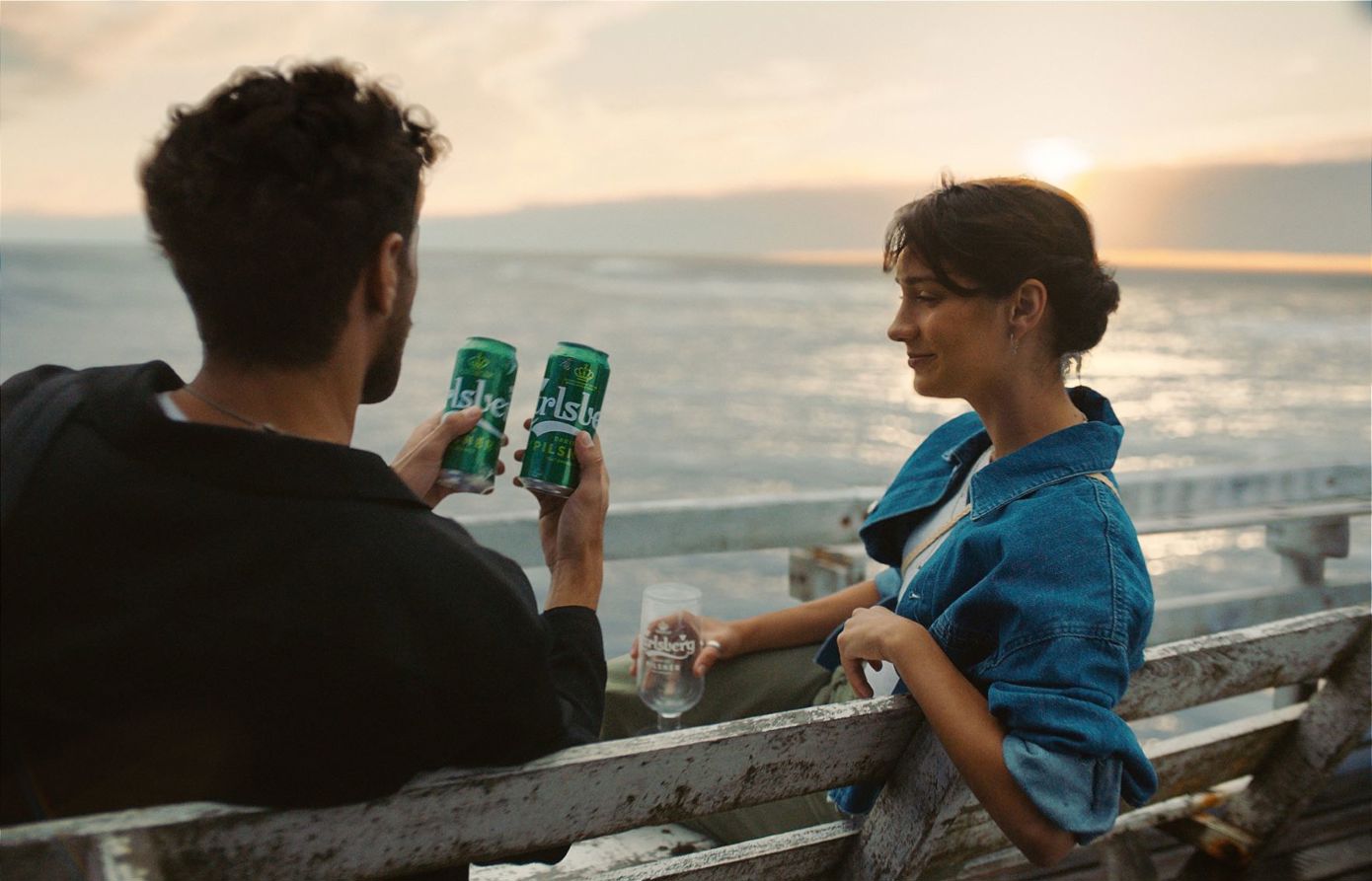
 Carlsberg partners with WWF to replenish water in the UK
Carlsberg partners with WWF to replenish water in the UK
Together with WWF-UK, our Carlsberg brand are helping selected farmers replenish 523 million pints of fresh water to help UK nature thrive.
At Carlsberg, the pursuit of better goes beyond beer. With 100% of the barley used in our Carlsberg Danish Pilsner being sourced from UK farms, we have a strong commitment to supporting local agriculture & sourcing our ingredients in a way that provides a more positive environmental impact throughout our brewing process.
Since 2021, we’ve been working with WWF-UK to better our local environment in the UK, beginning with a seagrass project focused on ocean conservation and the restoration of seagrass meadows along UK coastlines.
In 2023, our collaboration evolved to address the impact we, as brewers more directly have on our environment and the landscapes critical to barley production. Farming this land has an impact, so with WWF-UK and their delivery partner the Norfolk Rivers Trust, we are working to help farmers across the East Anglia region implement water sensitive farming methods.
Norfolk is one of the UK’s foremost barley growing regions, and is a key sourcing area for the barley we use in our products. Our work with WWF-UK aims to restore the aquatic environment and provide natural solutions to human-made problems.
WWF-UK’s delivery partner the Norfolk Rivers Trust begin by engaging farmers on water issues and the solutions available. They help farmers implement water & environmentally sensitive farming methods and develop targeted management solutions that benefit the soil and water, funded by the Carlsberg x WWF partnership.
Interventions range from farm to farm, but we’ve seen significant impact to the environment with the following:
- Planting Hedgerows: Hedgerows are strips of trees & shrubs that act as natural "corridors," connecting different habitats across expanses of farmlands allowing wildlife to move between sections of land. Hedgerows are vital habitats for insects, smaller mammals and amphibians, offering both shelter and natural boundaries.
- Soil Aeration: When soil becomes compacted, plant roots can struggle to get the nutrition they need, which can cause them to weaken or die. Soil aeration involves creating holes in the ground to allow air, water, and nutrients to penetrate more easily so grass and crops develop stronger roots, promoting healthier plants and encouraging lush, vibrant growth.
- Sediment Traps: Typically created by digging a small bond or basin, a sediment trap is a designated area strategically placed where rainwater runoff will carry soil particles to. Once the particles accumulate and settle in that area, cleaner water will flow away, thus preventing soil erosion and protecting waterways from pollution.
This initiative plays a vital role in safeguarding the local rivers and farmland from waste and run-off from nearby farmlands, protecting local flora and fauna and reducing the carbon footprint of farming. Looking ahead, we aim by 2026 to have replenished 523 million pints of fresh water in the UK.

Thirsty for more?

Helping BeerLao farm rice more sustainably
To reach our ZERO Farming Footprint goal, we are taking steps to adopt more sustainable agricultural practices.

Water replenishment with WWF in China and Laos
The Yangtze River Economic Belt is a crucial region for China’s economy, encompassing 11 provinces and municipalities that contribute over 40% of the country’s GDP. As part of our ZERO Water Waste ambitions, Carlsberg China is committed to taking part in protecting the vital water sources that support this region.

Expanding a partnership for strengthened water replenishment in India
Water is a primary ingredient in all our beverages. To help protect this vital resource, our aim is to replenish 100% of the water we consume at our breweries in high water-risk areas by 2030.
Central & Eastern Europe and India
-
Azerbaijan
-
Belarus
-
Bulgaria
-
Canada
-
Croatia
-
Estonia
-
Greece
-
Hungary
-
India
-
Italy
-
Kazakhstan
-
Latvia
-
Lithuania
-
Serbia
-
Ukraine



